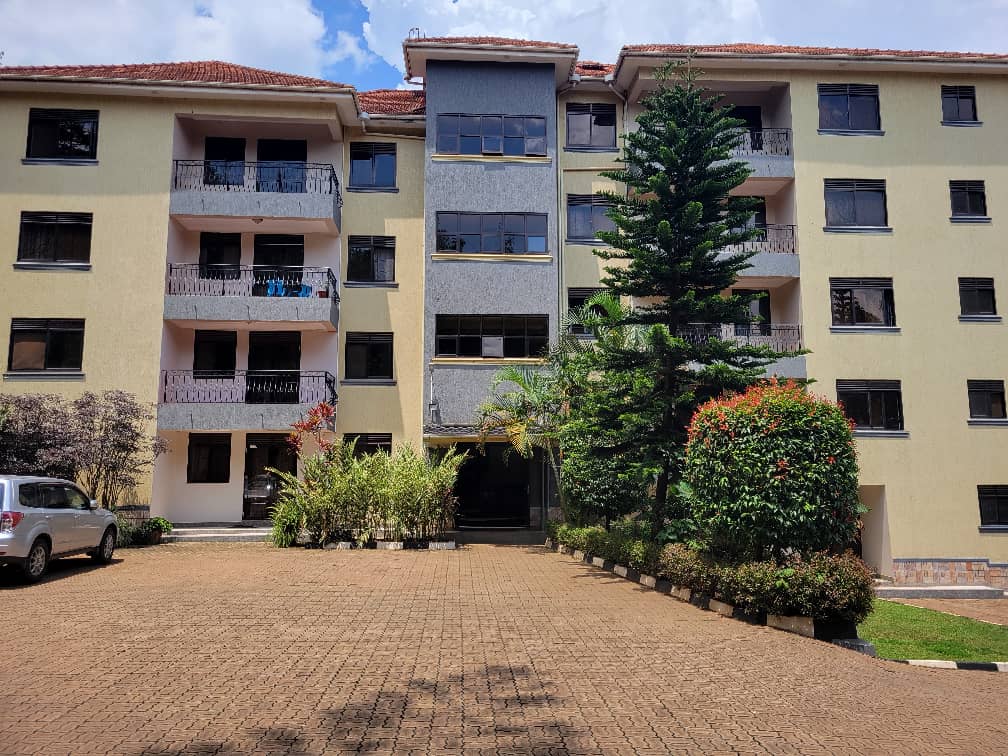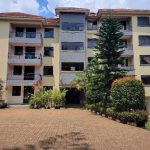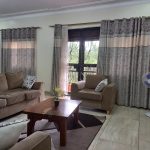Business Accommodation in Makindye: Your Corporate Stay Guide
Your company just confirmed it—you’re heading to Kampala for three months to manage the regional expansion. Or perhaps you’re a consultant rotating through East African assignments, landing in Uganda for six weeks of intensive project work. Maybe you’re relocating permanently to open the new office, and you need somewhere professional to live while you figure out the city. Whatever brought you here, you need more than a hotel room. You need a base where you can actually work, sleep properly, and maintain some semblance of normal life while delivering results under pressure.
Makindye offers business travelers a compelling proposition that many overlook in favor of flashier neighborhoods. This established residential area combines proximity to Kampala’s business districts with the kind of quiet, functional environment where you can actually concentrate after exhausting meetings. You’ll find reliable infrastructure, professional accommodation options, and the strategic positioning that keeps both your commute and your stress levels manageable. This guide walks you through everything business professionals need to know about making Makindye your Kampala base, from choosing the right furnished apartment to understanding why this location works better than obvious alternatives.
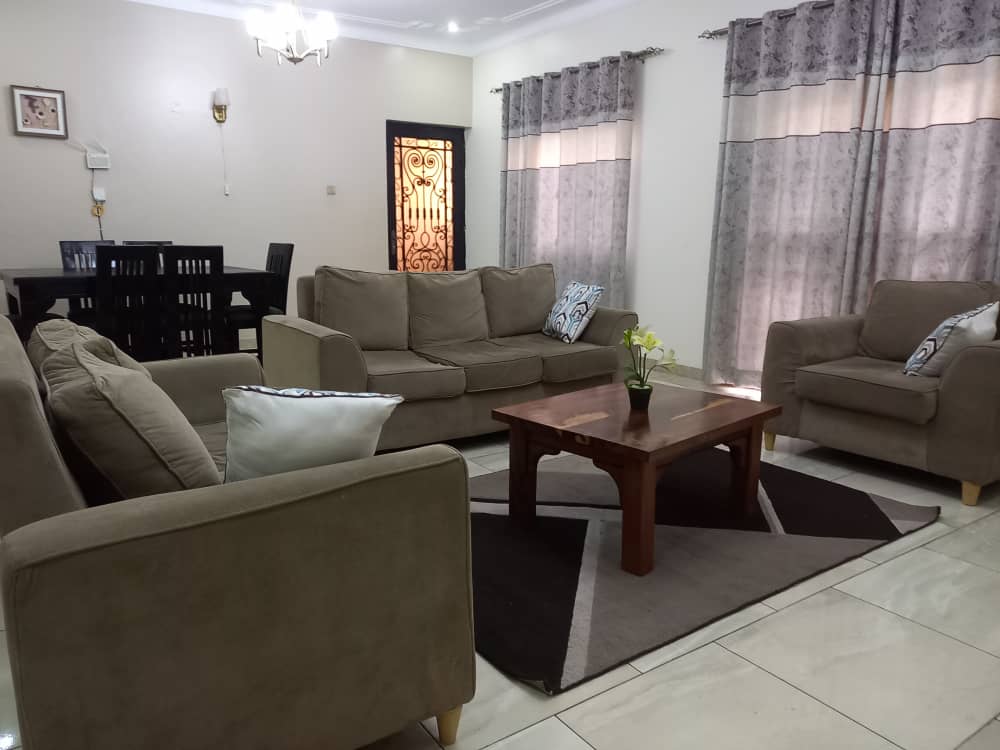
Why Business Professionals Choose Makindye Over Central Kampala
Makindye sits in what real estate agents call the “professional sweet spot”—close enough to matter, far enough to breathe. You’re looking at 15-20 minutes to the CBD during reasonable hours, putting you within easy reach of most Kampala business districts without subjecting yourself to the constant noise, traffic chaos, and urban intensity of actually living downtown.
The neighborhood spreads across moderate hills between Nsambya and Munyonyo, with Ggaba Road serving as the main arterial connection. This positioning gives you multiple route options when traffic inevitably snarls—experienced business travelers know that route flexibility in Kampala saves both time and sanity. You can reach Nakasero, Kololo business centers via Ggaba Road through Nsambya, or swing wider through Muyenga when construction blocks the direct route.
Corporate travelers consistently report that Makindye’s residential character dramatically improves their work-life balance during extended assignments. Unlike staying in Kampala Central where even hotel rooms vibrate with street noise until 2am, or Kololo where expat social scenes create different distractions, Makindye lets you actually disconnect when you need to recharge.
The area’s infrastructure reliability matters enormously for business productivity. Most compounds maintain serious generator backup systems because residents include diplomats and UN staff who cannot tolerate extended power outages. Internet service providers have invested properly here, understanding their customer base demands consistent connectivity. Water supply runs more reliably than many Kampala areas. These aren’t glamorous considerations, but they’re the details that determine whether you can work efficiently from home or waste hours troubleshooting basic utilities.
Compared to Muyenga’s steeper hills and higher rents, Makindye offers easier navigation and better value. Unlike Bugolobi’s heavier commercial development, it maintains genuine residential quiet. And while Kololo provides prestige addresses, its traffic congestion, limited parking, and premium pricing often frustrate practical business travelers who care more about functionality than status.
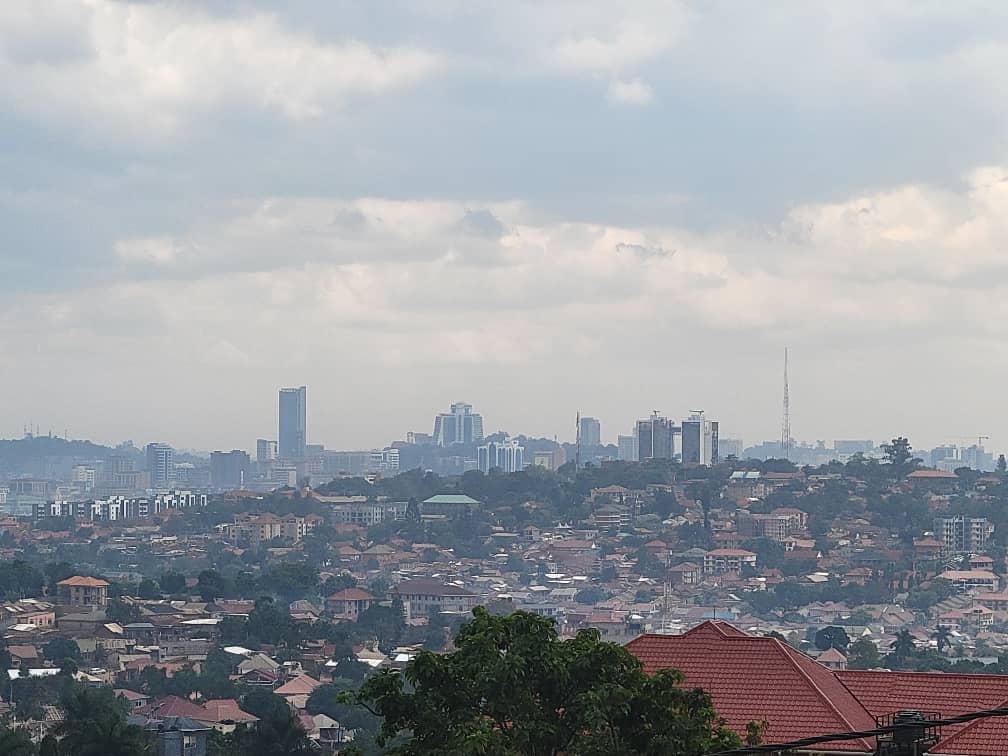
What Makes Makindye Ideal for Extended Business Stays
The fundamental advantage of business accommodation in Makindye comes down to space and setup. A standard one-bedroom furnished apartment here provides 600-800 square feet—roughly triple a hotel room. That extra space translates directly into work capability.
You get dedicated workspace separate from sleeping areas. Most furnished apartments include proper dining tables that convert perfectly into desks, with decent lighting and space for spreading documents, multiple monitors, or project materials. After eight hours of video calls, you can physically walk away from your workspace rather than staring at your laptop from bed.
Full kitchens change the economics and health dynamics of extended stays. Breakfast costs you 3,000 UGX worth of eggs, bread and coffee instead of 40,000 UGX at hotel restaurants. You can prep simple dinners in 20 minutes rather than spending an hour navigating restaurant logistics after long workdays. The control over nutrition matters more than people expect—maintaining energy and health during intense project phases determines success more than most realize.
Laundry facilities eliminate one of business travel’s constant low-level stresses. No more rationing shirts, no more panic about whether hotel laundry will return in time for tomorrow’s client meeting, no more travel day calculations around clean underwear. You do a load whenever convenient and maintain the professional appearance your work demands.
Privacy proves crucial for business travelers handling sensitive work. Hotel rooms mean conducting confidential calls while hoping walls are thick enough. Furnished apartments give you genuine privacy for those difficult calls with headquarters, team videoconferences without interruption anxiety, and space to work on sensitive documents without worrying about housekeeping walking in mid-spreadsheet.
The psychological element cannot be ignored. Hotels keep you in visitor mode—you’re always a guest, following house rules, conforming to service schedules. Apartments shift you toward resident status. You establish routines, control your environment, and create the kind of stable home base that helps maintain performance during the intense, often exhausting reality of international business assignments.
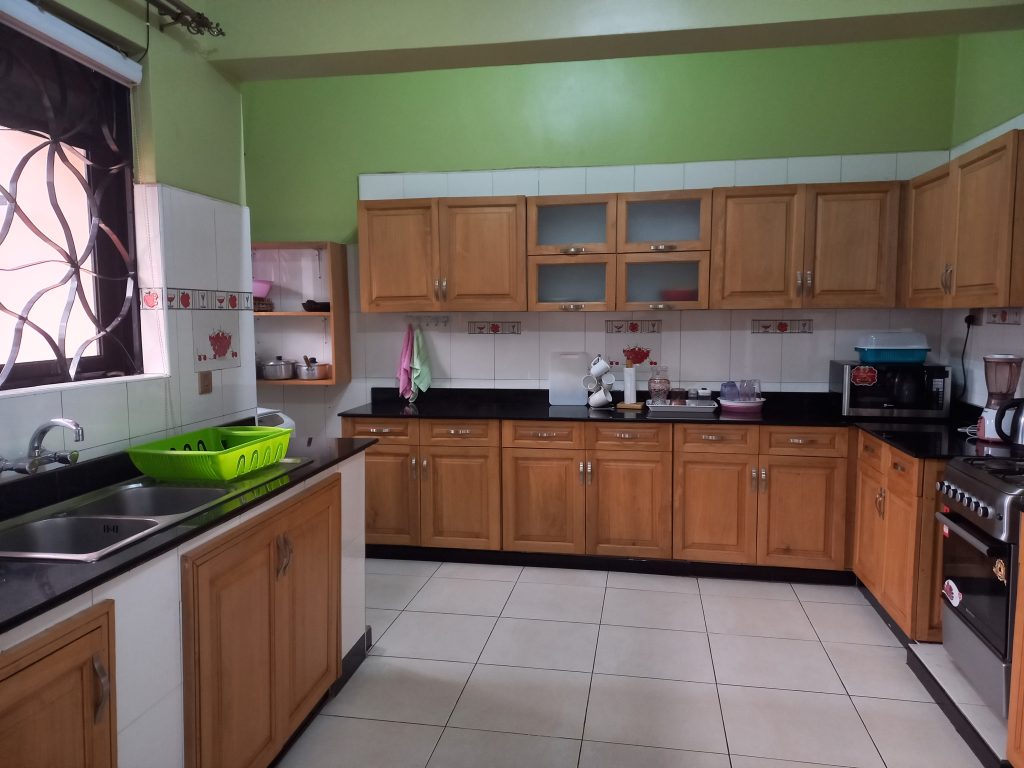
Strategic Location: Accessing Kampala’s Business Districts from Makindye
Understanding Makindye’s connectivity to key business areas helps you evaluate whether this location serves your specific assignment needs. The CBD sits 5-7 kilometers north via Ggaba Road through Nsambya—a straight shot that takes 15 minutes off-peak, stretching to 40-50 minutes during morning rush hour (7:00-9:30am). Smart business travelers learn to schedule early meetings before traffic peaks or late-morning appointments after the crush clears.
Nakasero, where many embassies, NGO headquarters, and government offices cluster, adds another 5 minutes beyond the CBD. Kololo business district—home to numerous multinational offices, corporate headquarters, and professional services firms—sits about 20 minutes away via Kololo Hill or through Tank Hill routes. The new developments in Bugolobi and Bukoto, where many tech companies and modern offices concentrate, lie 15-20 minutes northeast.
Industrial area meetings near Ntinda or Naguru require 25-30 minutes, while Entebbe Road business parks (Kajjansi area) sit roughly 35-40 minutes via Nsambya to Entebbe Road. The airport itself runs 35-45 minutes depending on route and traffic—manageable for early morning flights without requiring 4am departures.
These times assume you’re driving or taking Uber/Bolt taxis. Boda-bodas (motorcycle taxis) can cut times significantly during heavy traffic but come with safety trade-offs many corporate travelers and their insurance policies don’t accept. Most business professionals either hire a driver for the assignment duration, use ride-hailing apps extensively, or lease vehicles if staying longer than three months.
The evening commute reverses traffic patterns, with southbound Ggaba Road clogging from 5:00-8:00pm as workers return home. This actually benefits Makindye residents heading home—you’re traveling against primary traffic flow. Colleagues living in Ntinda or Najjera often sit in gridlock for 90+ minutes while you’re home in 25.
Meeting clients across Kampala from Makindye requires strategic planning. The city’s notorious traffic means you cannot reliably reach opposite sides of town in under an hour during business hours. Schedule your day geographically when possible—cluster appointments in the same area, use coffee shops for interim work rather than returning home between meetings, or embrace the reality that some days mean significant time in vehicles.
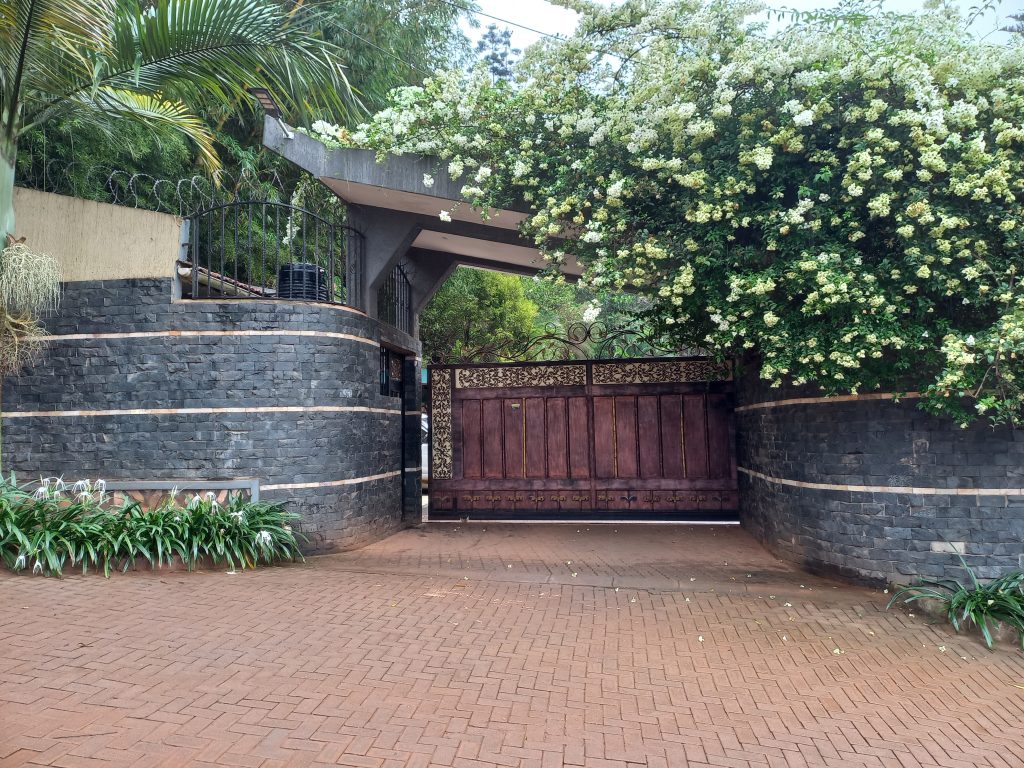
Infrastructure That Supports Business Productivity
The practical details of daily business operations separate functional accommodation from frustrating experiences. Power reliability in Makindye generally exceeds many Kampala areas, but outages still occur. The critical factor is backup systems. Most professional-grade furnished apartments in Makindye include automatic generator switchover that kicks in within seconds of power loss, maintaining your ongoing video call without embarrassing interruptions.
Verify generator capacity specifically—some systems power only lights and refrigerators, leaving air conditioning, water heaters, and heavy electronics unsupported. For business accommodation, you need generators capable of running your full work setup including laptop chargers, monitors, routers, and climate control during Kampala’s hot seasons when working without AC becomes miserable.
Internet connectivity makes or breaks remote work capability. Makindye benefits from competitive ISP coverage—MTN Fiber, Airtel, and Smile all operate in the area with varying reliability by specific location. Speeds of 10-20 Mbps suffice for basic video calls and email, but 30+ Mbps delivers smoother performance for regular videoconferencing, large file transfers, and VPN usage.
The frustrating reality: internet performance varies dramatically compound by compound, even street by street. Ask landlords specifically about internet reliability, request current speed tests, and speak to existing tenants if possible. Many business travelers maintain backup mobile hotspots through local carriers for redundancy—the 50,000 UGX monthly cost proves trivial compared to missing critical calls due to connectivity failures.
Water supply in Makindye runs reliably compared to some areas, with most compounds maintaining large underground storage tanks (5,000+ liters) plus rooftop reserve tanks. Business travelers need guaranteed water for basic daily routines—morning showers before meetings, washing dishes, laundry—without rationing or uncertainty. Electric water heaters should connect to generator backup; solar-only systems fail during Kampala’s cloudy periods exactly when you need hot showers most.
Security infrastructure matters for both physical safety and professional image. Gated compounds with 24/7 security guards provide controlled access, package receipt when you’re at meetings, and basic property monitoring. This isn’t about dramatic security concerns—Makindye is generally safe—but about the low-level logistics that smooth business travelers’ lives. Guards sign for courier deliveries, direct visiting colleagues to your apartment, and provide the consistent human presence that deters opportunistic theft.
Furnished Apartments vs Hotels: The Business Case for Makindye
The mathematics prove compelling fast. Mid-range business hotels in Kampala charge 300,000-450,000 UGX nightly. That’s 9-13.5 million UGX monthly—devastating to project budgets and corporate travel allocations. Furnished apartments in Makindye typically rent for 2-4 million UGX monthly for professional one-bedroom units, 3-5 million for two-bedrooms suitable for couples or those needing separate office space.
For assignments longer than two weeks, apartments deliver better financial and operational sense. The breakeven point arrives around day 10-14 depending on specific rates. Beyond that, every additional week in an apartment saves your company substantial money while improving your working conditions.
Hotels excel for their intended purpose—brief stays where convenience trumps economy. Three days in Kampala for meetings? Hotels handle everything. But extended assignments reveal hotels’ limitations quickly. The room service breakfast you enjoyed on day three becomes unbearable by week two. The gym closes at 9pm just when you finally finish work. The business center charges for printing. The minibar restocking feels invasive when you’re mid-conference call.
Space constraints create real productivity problems. That hotel desk barely holds your laptop, much less documents, notebooks, or second monitors. Conference calls echo awkwardly in bathroom corners searching for better acoustics. Sensitive documents live scattered across limited surfaces because there’s literally nowhere to file them properly.
The mental health benefits prove impossible to quantify but very real. Hotels maintain you in transient mode—you’re never fully settled, always semi-packed, perpetually aware you’re in temporary space. Apartments allow genuine settling. You unpack completely, establish real routines, create home. This psychological grounding dramatically impacts your ability to maintain performance during extended, often stressful business assignments far from your actual home.
Practical Amenities Business Travelers Need in Makindye
Beyond basic shelter, professional accommodation requires specific features that determine work success. Workspace configuration tops the priority list. You need dedicated surface area for spreading work materials—a proper desk or dining table with adequate seating, good lighting (both natural and artificial), and electrical outlets positioned for charging laptops, phones, and other devices without extension cord spider-webs.
Climate control matters more than many expect. Kampala’s heat peaks February-March, making air-conditioned workspace essential for concentration. Even if you’re tough about temperature, try maintaining focus through three hours of video calls in 32-degree rooms. At minimum, ensure strong ceiling fans and window ventilation. Full AC, while more expensive in rent and electricity, proves worthwhile for assignments during hot months.
Storage separates livable apartments from cramped frustration. Business travelers accumulate stuff—work documents, supplies, extra professional clothes, equipment, personal items for months-long stays. Adequate closet space, shelving, and cabinet storage throughout the apartment determines whether you maintain organized professionalism or descend into cluttered chaos.
Kitchen functionality impacts daily efficiency. You don’t need restaurant-quality equipment, but functional refrigerator, stove, microwave, and basic cookware enable the simple meal preparation that saves hours and maintains health. The ability to make proper coffee in the morning rather than hunting cafes affects entire day quality.
Laundry access proves non-negotiable for stays beyond two weeks. In-unit washing machines deliver maximum convenience, while compound laundry facilities work adequately. Either beats the expensive hassle of service providers or manual washing in bathroom sinks—you’re here for business, not camping adventures.
Meeting-capable spaces add value. Some furnished apartments include living areas suitable for hosting small client meetings or team sessions. This capability, while not essential, can prove extremely convenient when hotels or restaurants feel inappropriate for confidential business discussions.
Parking availability matters if you’re leasing a vehicle or hiring a driver. Most Makindye compounds include assigned parking, but verify specifically. Street parking exists but creates daily logistics you don’t need during busy work periods.
Working from Home: Makindye’s Quiet Advantage
The rise of remote work and hybrid business models makes accommodation workspace quality more critical than ever. Makindye’s residential character provides genuine advantage here compared to busier commercial areas. The ambient noise level in quiet Makindye compounds allows professional video calls without constant background disruption.
Try conducting important client presentations from hotels on Kampala Road where traffic noise penetrates walls constantly. Or from Kabalagala apartments where street-facing windows catch nearby bar noise. Makindye’s removed residential streets eliminate these distractions—your video calls feature your voice, not competing urban soundtrack.
Reliable daily routines matter enormously for sustained productivity. In Makindye, you can establish actual work-from-home rhythm: morning exercise around the compound, proper breakfast in your kitchen, focused work blocks without interruption, lunch breaks that actually restore energy, afternoon productivity, clean shutdown at reasonable hours. Hotels cannot support this kind of structured routine—their service schedules, shared spaces, and transient environment constantly disrupts attempts at consistency.
Time zone challenges affect many business travelers working with headquarters in Europe, North America, or Asia. Furnished apartments accommodate odd-hour calls without bothering neighbors in adjacent hotel rooms. You can take 6am calls with London without anxiety about noise complaints. Late-night sessions with New York teams happen in your living room, not hotel lobbies after business centers close.
The mental separation between work and rest becomes possible in apartments with multiple rooms. You can physically leave your workspace at day’s end, close the door, and transition into personal time. In hotel rooms, your workspace is your sleeping space is your dining space—the psychological bleed between work and rest becomes toxic during extended stays.
Cost Optimization for Extended Corporate Assignments
Smart finance teams increasingly question expensive hotel stays for long-term assignments. The budget case for furnished apartments in Makindye proves straightforward, but understanding specific savings helps justify decisions to procurement departments.
Accommodation costs obviously dominate. At 3-4 million UGX monthly for professional apartments versus 9-13 million for equivalent hotel rooms, you’re saving 6-9 million monthly on lodging alone. Over a three-month assignment, that’s 18-27 million UGX savings—enough to justify the hassle of apartment setup.
Food expenses drop dramatically with kitchen access. Hotel breakfast (40,000 UGX), lunch (50,000 UGX), and dinner (60,000 UGX) total 150,000 daily or 4.5 million monthly. Cooking even half your meals slashes this to 2-2.5 million monthly—additional 2-2.5 million savings. The health benefits of controlled nutrition during stressful work periods cannot be monetized but prove equally valuable.
Laundry costs vanish. Hotel laundry services charge premium rates—a shirt costs 8,000-10,000 UGX, full weekly laundry runs 80,000-100,000 UGX. Over a month, that’s 320,000-400,000 UGX. In-unit washing machines reduce this to perhaps 50,000 monthly in electricity and detergent.
Miscellaneous hotel charges accumulate insidiously: business center usage, extra breakfast when you oversleep the included meal, minibar temptations, parking fees, guest visitor charges. Apartments eliminate these nickel-and-dime expenses entirely.
Tax efficiency varies by company structure, but furnished apartment rentals often qualify as different expense categories than hotel costs, potentially offering advantages depending on your organization’s situation. Consult your finance team, but the question’s worth asking.
The total savings for a three-month assignment can exceed 25-30 million UGX compared to equivalent hotel stays. Even factoring setup time and reduced hotel conveniences, the business case proves overwhelming for assignments beyond two weeks. Progressive companies increasingly mandate apartment accommodation for extended deployments, improving both budget efficiency and employee satisfaction.
Getting Work Done: Coworking and Meeting Spaces Near Makindye
Despite excellent home-working conditions, some business needs require external spaces. Client meetings, collaborative team sessions, or simply breaking cabin fever occasionally necessitate leaving your apartment. Makindye’s location provides access to several professional alternatives.
The Hive Coworking in Bukoto (20 minutes north) offers day passes around 40,000 UGX, monthly memberships for 450,000-600,000 UGX depending on desk type. Their facilities include meeting rooms, reliable internet, printing services, and the networking opportunities that spark unexpected business opportunities. Many corporate travelers maintain occasional coworking memberships for variation and professional interaction.
Outbox Hub in Kamwokya provides similar services in the opposite direction, though farther from Makindye. Design Hub in Bukoto caters to creative professionals with excellent meeting spaces bookable hourly.
Coffee shops serve as informal workspace for lighter days. Java House at Village Mall (10 minutes toward Bugolobi) provides decent WiFi, comfortable seating, and professional enough atmosphere for casual client coffees or individual work sessions. 1000 Cups in Bukoto offers similar utility with better coffee and food.
Hotels themselves provide useful meeting venues even when you’re not staying there. Serena, Sheraton, or Protea hotels in central Kampala rent meeting rooms hourly for client presentations or team sessions requiring professional staging. The costs (200,000-400,000 UGX for half-day rooms) prove worthwhile when image matters.
For less formal meetings, several restaurants near Makindye provide quiet daytime environments: Khana Khazana for Indian cuisine in professional settings, Mediterraneo near Acacia Mall for European atmosphere, or The Lawns for relaxed outdoor discussions when weather cooperates.
The logistics of working partly from home, partly from external spaces, requires transportation planning. Most business travelers find that maintaining a hired driver (300,000-400,000 UGX monthly) or budgeting 15,000-30,000 UGX daily for Uber/Bolt makes this flexibility operational. Boda-bodas provide cheaper alternatives (5,000-10,000 UGX per trip) but prove challenging when carrying laptops and documents.
After Hours: Maintaining Balance During Business Assignments
Extended business travel damages health and relationships if you don’t actively manage downtime. Makindye’s location supports maintaining some life balance during intense work periods.
Exercise options matter for stress management and energy maintenance. Several gyms operate within 10-15 minutes: Health Club 2000 in Bugolobi offers decent facilities and swimming pool, while smaller local gyms in Makindye itself provide basic equipment at lower costs. Many compounds include small gyms or space for home workouts. Running routes through Makindye’s residential streets work early mornings before heat and traffic build, though be mindful of uneven sidewalks.
Dining out provides necessary social relief from apartment cooking. Makindye sits convenient to multiple restaurant options: Khana Khazana (Kabalagala) for excellent Indian food, Mediterraneo (Acacia Mall area) for Italian, Fang Fang (Kololo) for Chinese, and numerous Ugandan spots serving traditional foods. Budget 50,000-100,000 UGX for proper dinner out, less for casual spots.
Weekend escapes prove essential for psychological health during long assignments. From Makindye, you can reach Jinja (2 hours) for white-water rafting or river relaxation, Entebbe (45 minutes) for botanical gardens and lakefront calm, or Ssese Islands (ferry from Entebbe) for genuine beach escapes. These short breaks prevent the burnout that diminishes work performance and makes assignments miserable.
Social connection combats the isolation of solo business travel. Several expat groups organize regular meetups: Hash House Harriers for running/walking social events, Kampala Expats Facebook group for various activities, professional networking groups through embassies or chambers of commerce. Even introverts benefit from occasional human interaction beyond work contexts.
Simple routines ground you during disorienting travel periods: regular morning coffee at the same café, weekly phone calls home at consistent times, Saturday morning market visits, Sunday afternoon planning for the week ahead. These anchors of normalcy help maintain mental health during the stress and disorientation of living away from home while performing demanding work.
Choosing the Right Furnished Apartment in Makindye
The specific apartment determines your entire assignment experience. Beyond obvious factors like cost and size, several details separate excellent business accommodation from mediocre options.
Location within Makindye matters significantly. Properties along or very near Ggaba Road provide easier transport access but more traffic noise. Compounds set back on side streets like Kibuli, Salaama, or Tank Hill areas offer quieter environments with slightly longer connection to main roads—worthwhile trade-off for better sleep and call quality.
Security must be serious, not theatrical. Look beyond gates and guards to actual protocols: Do guards log visitors? Are compound walls genuinely secure? Does lighting cover all pathways? Are there active patrols overnight? Talk to current residents about their security experience, not just what landlords promise.
Internet capability requires specific investigation. Don’t accept vague “WiFi included” assurances. Ask for current speed tests, identify the ISP, understand who handles troubleshooting when service fails. If internet proves critical to your work (and it probably does), verify redundancy options or plan to arrange your own backup.
Generator capacity and reliability matter more than mere existence. Ask how quickly it engages after power cuts, what systems it supports, how often it’s serviced, fuel arrangements during extended outages. Request a demonstration if possible—some landlords claim generators that rarely function properly.
Furnishing quality varies wildly. Some “furnished apartments” include minimal furniture, inadequate kitchenware, uncomfortable mattresses, and insufficient storage. Others provide genuinely professional setups. If possible, visit before committing. If signing remotely, request extensive photos and detailed inventory lists.
Lease flexibility protects you if assignment lengths change—corporate plans shift constantly. Seek month-to-month terms after initial commitments, understand early departure penalties, clarify extension procedures. Good landlords recognize business travelers’ uncertainty and build reasonable flexibility into terms.
Maintenance responsiveness separates professional landlords from nightmares. When your water heater fails before important meetings or internet crashes during crucial presentations, you need help immediately, not “we’ll try to come next week.” Ask for emergency contact numbers, response time commitments, and current resident references about actual maintenance experience.
Making Makindye Work for Your Business Assignment
Makindye delivers what corporate travelers actually need rather than what glossy hotel brochures advertise. You won’t get lobby bars or room service or concierge desks. But you’ll get functional workspace where you can actually concentrate, reliable infrastructure supporting consistent productivity, and the kind of stable home base that helps you maintain performance during extended, demanding assignments far from home.
The strategic positioning keeps you connected to Kampala’s business districts without drowning in urban chaos. The residential character provides genuine quiet when you need to recharge between intense work periods. The cost structure makes financial sense to budget-conscious organizations increasingly questioning expensive hotel defaults. The space and amenities enable the kind of daily routine that sustains health and productivity across months-long deployments.
Business travelers who successfully base themselves in Makindye share certain approaches: they establish clear work routines immediately, they invest in proper internet backup systems, they build relationships with security guards and compound neighbors who become their support network, they deliberately create work-life separation even in small apartments, and they maintain the discipline around exercise, nutrition, and rest that determines success as much as any work skill.
At Palatine Apartments Uganda, we’ve supported numerous business professionals, corporate travelers, and consultants in establishing their Kampala base in Makindye. Our furnished apartments are specifically equipped for working professionals—reliable internet, serious generator backup, dedicated workspace areas, and the kind of functional amenities that actually matter when you’re trying to deliver results under pressure. We offer flexible lease terms from one month to a year, understanding that corporate assignments rarely follow predictable timelines.
Whether you’re arriving next week for a three-month project or planning a permanent relocation and need temporary professional housing while you explore Kampala, we understand what business travelers actually need because we’ve been solving these problems for years. Let us help you find an apartment that supports your work rather than complicating it, so you can focus on your actual assignment rather than accommodation logistics. Reach out to discuss your specific requirements—we’re here to make your Kampala business stay as productive and comfortable as possible.

